What is a CRM?
A CRM or Customer Relationship Management are really helpful tools that can speed up your business’s growth. They do this by making team collaboration easier, keeping track of business contacts, sharing information, automating tasks, and more.
According to Hubspot’s 2023 Sales Trends Report the most important things company leaders are tracking are CRM usage, calls made, follow-ups on high-quality leads and proposals sent.
47% of the tracking goes towards CRM usage. Incorporating one into your business is vital to future-proofing your business in the years to come. Not sure yet? Let’s dive into some of the reasons why your company needs a CRM.
What your CRM can do
1. It focuses on making your business customer-centric
When a business goes through a growth spurt it’s natural for it to experience some friction. Friction is when something makes it harder for customers to buy what you’re selling. It could be long wait times, finding out the product is not available, or having a bad experience with a company’s website.
However, having an all-in-one CRM in place can reduce the amount of friction your business experiences because they are built with the customer in mind. You are able to align all of your business processes and daily goals around your customers.
2. All your departments will be on the same page.
Making sure all your teams and departments are on the same page is so important in ensuring the success of your business. Especially your marketing and sales teams. If they are able to work together efficiently, this will streamline every step of your customers’ journey. This in turn will give the customer a positive experience with your service from start to finish.
40% of sales professionals have said that having a CRM has been “effective” or “highly effective” in aligning their sales and marketing teams.
3. Update and share info easily
No one likes updating client information manually. It’s boring and time-consuming and if not done correctly, there’s a potential to lose leads and customers. By using a CRM, no matter who a client speaks to – whether it’s sales, marketing, or support – any new information that needs to be documented can be added to the customer’s profile and it will be updated throughout all business departments.
What we’re saying is that you won’t have to manually update info at a later stage because a CRM can do it for you and everyone will have immediate access to it. All information you see will be accurate and up-to-date allowing you to tailor make individual customer experiences easily.
4. Daily Tasks can be automated
Some admin tasks are tedious but necessary. So why not let a CRM do it for you! Aside from the above benefit of it updating customer information across the company, it can also:
- Initiate sales workflows
- Assign leads to different reps/departments
- Send follow-up emails to clients
- Execute email sequences
- Nurture potential leads via campaigns
- Report on campaign analytics
5. Workflow creation
Workflows make sales, marketing, and service tasks more organised. Which is great for saving you time.
List the set of criteria you need for a specific workflow (e.g. quotes, contacts or deals) and boom, the CRM will automatically enrol those records and take action.
You can create workflows for things such as:
- Tickets
- Companies
- Deals
- Custom objects
- Quotes
- Contacts
6. Customer engagement is more simple
Nowadays there are so many ways to reach and engage with customers and potential leads. Social media platforms, email, live chat and video calls.
Because CRMs are customer-centric, they have adapted to meet the issues some of the customer-facing teams and reps are dealing with. They are able to work with a number of other services and channels where customers and leads engage with your business.
For example:
- Email tracking to send automated follow-ups and email marketing campaigns and will also tell you when leads open marketing emails.
- Call tracking which allows your CRM to gather relevant information about a customer and then update the contact record of that customer.
- Live chat/ chatbot where your CRM can handle answering frequently asked questions.
- Social media management tools help your CRM keep an eye on any comments or questions your business might be tagged in and answer them accordingly.
- Videos to send more tailored and memorable marketing messages and track their engagement.
7. Customise your dashboards and metrics
CRMs simplify the process of reporting and analysing your operations and sales funnel. Being able to personalise the reporting tools in a CRM allows you to focus on the metrics that matter the most. This helps easily identify potential areas for improvement and growth.
Make sure you’re using yours correctly!
Customer Relationship Management (CRM) systems are essential for businesses. They make it easier to work with customers, reduce hassles, and save time. CRMs help different parts of a business to collaborate seamlessly, ensuring a positive experience for customers.
They also automate tasks, manage data, and improve customer engagement using various communication methods. With customisable tools, CRMs help companies analyse data and grow.
As the CRM market grows, using these systems becomes crucial for businesses to stay competitive and serve customers better.
To read more about CRM Solutions, click here.











